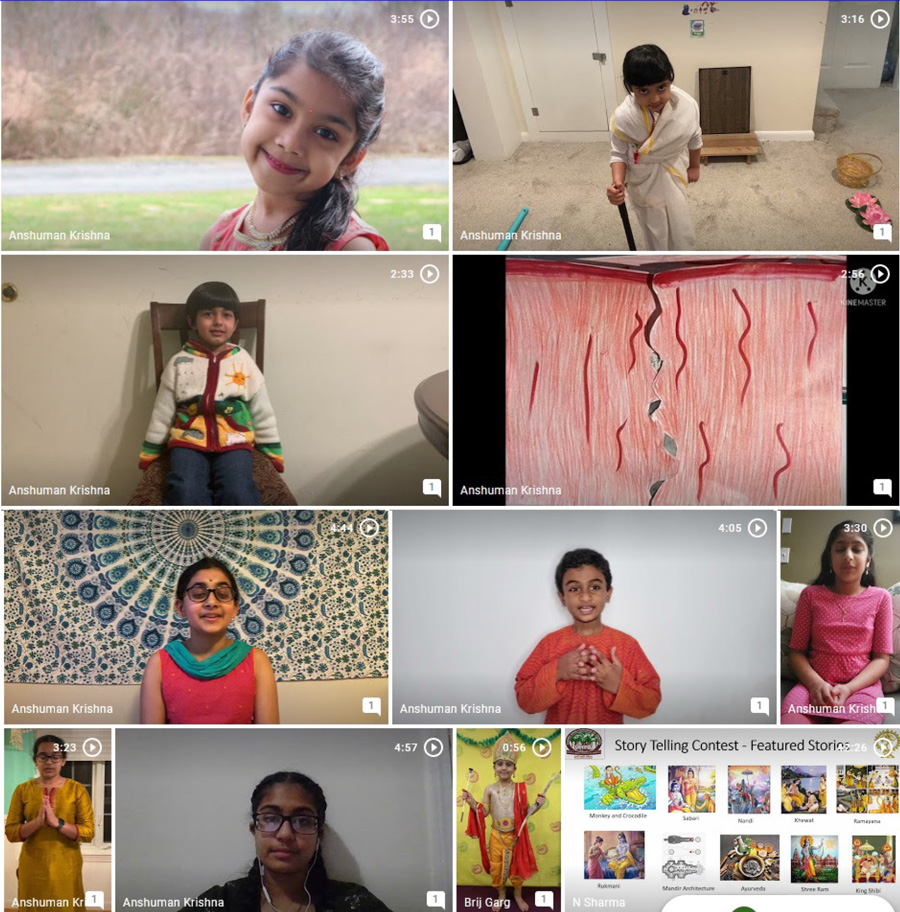Again and again we hear, children are the image of Ishwar, books are divine, and we are merely the awareness that take in what our bodies do. In Hindu thought, Nature is called Dharti Ma, Mother Earth. The Isha Upanishad states that the universe is pervaded by one Supreme Being. The Rig Veda poetically describes the Divine cosmic person, with the sun from his eyes, the moon from his mind and the wind from his breath. The Yajur Veda further emphasizes that Ishwar is all might, he is not one being or one person but rather he is omnipresent, He is in all the Earth, in all waters – sacred rivers, lakes, wells and even rain. Nature is not separate from the Divine but rather one and the same and is a direct manifestation of Ishwar, emphasizing oneness with all creations. Nature is called Dharti Ma, Mother Earth, who holds us close to her bosom and provides for all our needs.
Nature and human beings have a relationship of mutuality. One who does not honor this relationship “lives life in vain”. Nature serves humans and equally, humans are servants of Nature, not its masters or stewards. When greed and self-indulgence take over, we violate the clear teachings of our sacred texts.
The Isha Upanishad advises us to enjoy nature without over consuming it, giving back and obtaining an overall endosymbiotic relationship.
But the age of capitalism and consumerism teaches us the opposite. If something does not work, buy another one and throw away the old one. Don’t think about the effect it has on Mother Earth.
Hindu Dharma teaches us Aparigraha – which means non acquisitions, minimalism, acquiring only what is necessary. We must distinguish between our wants and our needs. Ask yourself do you really need it, and the distinction between wants and needs becomes obvious.
From Gandhi to MLK we have learned about nonviolence, but this was first emphasized in the Vedas and other sacred texts. They talk about ahimsa, which is not simply non-violence, but it extends beyond humans, to not harming plants, animals, and nature, not even in thought.
Who here likes stories? Well today I have a short story that encompasses what the environment means to you and me.
King Prithu
When King Prithu ascended the throne, a famine took over the land. The king was angry at Goddess Earth for withholding her produce and causing distress. He approached her and asked why she did that. She protested that she had been exploited for generations by his predecessors who had stolen her produce without returning to Earth what was her due. She pleaded to restore the respect due to her and to help her conserve rainwater by landscaping the ground and creating water reservoirs. When Prithu agreed and offered to protect earth as his daughter, Goddess Earth again became prolific in her produce. Earth came to be known as Prithvi, i.e., daughter of Prithu.
Associating animals with Ishwar, using flowers for Pooja, revering rivers and mountains as sacred are all examples of nature being intertwined with Hindu Dharma and attaining balance. We must do our part to make sure this balance is maintained.




![[ India Today ] Ohio senator JD Vance thanks wife, a Hindu, for helping him find Christian faith](https://hinduvishwa.org/wp-content/uploads/2024/06/us-senator-jd-vance-reveals-how-his-hindu-wife-usha-helped-him-find-his-christian-faith-image-re-272530504-16x9_0-120x86.webp)










